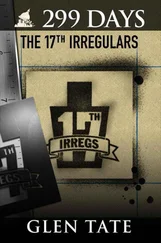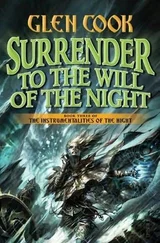This idea of free medical care for those who contributed to the Pierce Point community wasn’t universal health care like the fiasco the former government forced on America. That system covered everyone—well, kind of if you count dropping dead waiting months for life saving treatments that were needed immediately as “coverage.” But it taxed everyone for it. And taxes were taken with the force of law, which was really the force of violence. Don’t pay your taxes and see what happens. It involved search warrants, arrests, and jail.
The Pierce Point system was different. If you donated labor or supplies, you were making a contract of sorts with the community to get free care. It was a fringe benefit for what you were doing for the community. If you chose not to make that agreement with the community, you were on your own. You would be treated, but it would cost you.
Grant loved the political significance of the clinic. The community, led by him and Rich and various committees of people helping, were getting people medical care when none else existed. The community, working the Patriot way of voluntary exchanges instead of government coercion, was getting something done and making people’s lives better. Participate in the Patriot way, and things are better for you. The former government couldn’t come close to providing medical care for Pierce Point residents. But the Patriots could.
Grant thought they needed to get some black market medical supplies. He was thinking of things of value they had to use to buy medical supplies. He thought of Chip and his basement goodies, or they could “liberate” some medical supplies. Grant was warming up to the idea of taking medical supplies by force from the government. The government had stolen from Grant and other taxpayers for decades. Payback time. But he would try to buy them first and take them as a last resort.
Grant wanted to emphasize the point about Lisa and the medical team getting paid. He needed to encourage a semi-reluctant Lisa. “Seriously, this case-of-tuna thing will really help,” Grant said. “Between the Team getting fed at the Grange and Lisa getting food and other supplies for being a doctor, I think we can really stretch our stored food out here. And, when you add in Mark’s and John’s hunting and fishing,” Grant said that to remind those two that they needed to start bringing some food to the table instead of just hanging out with the Team at the Grange all day, “we should do OK. I am encouraged, for the first time in quite a while.”
Everyone was nodding. Maybe this wasn’t the end of the world. Maybe it was just a dark chapter, a low point. Maybe they’d make it.
Grant waited for the outside thought to tell him he was right. Then he realized that the outside thought was only there to encourage him when he needed it. He didn’t need encouragement right now. He could see with his own eyes that things were working out. For now.
Chapter 101
I’m Going to Die
(May 10)
The Over Road crew finished their pancakes and then it was time to go to work. Mary Anne asked Lisa to come with her to see Mrs. Roth. The night before, Rich asked the Team to come down to the gate in the morning and meet the gate guards. Drew was still working on inventorying things, and Eileen was working on food planning. She had also taken on the laundry duties. She hadn’t done much laundry in the past few years with just her and Drew in the house and, in a weird way, she missed it. She used the Morrell’s washer and dryer, and this gave her plenty of time to work with Mary Anne on gardening issues. They would sit in Mary Anne’s house in between loads of laundry and talk about food and gardening. Although not as glitzy as gunfighting, their work was invaluable.
Manda was watching Cole, and now Missy. Paul did guard duty and was going to start on metal fabrication. John and Mark would hunt and fish. Tammy had her day job at the power company and was getting lots of gas for that, which was a big plus. Out at Pierce Point, there was an order and even a rhythm; a new “normal.” It didn’t take long for hardworking people to figure out new things they needed to do.
On the short walk over to her house, Mary Anne told Lisa about all the canning supplies Mrs. Roth had donated.
They knocked, but there was no answer. They were worried something had happened, so they opened the unlocked door. They found Mrs. Roth in her “comfortable chair” in the living room.
“Sorry,” Mrs. Roth said. “I was too weak to answer. Forgive me.”
“Of course,” Mary Anne said. “I have good news. This is Dr. Matson. She can look at you.”
Lisa asked, “Mrs. Roth, are you OK?”
Mrs. Roth knew that it was time to tell her secret. It didn’t matter at this point, anyway. “Well, I have something called myasthenia gravis. It’s rare. Have you heard of it?”
Lisa had. It was very, very rare. It was when the body’s immune system interfered with the nerves controlling the voluntary muscles. It made it difficult to move and caused extreme fatigue. It even made it difficult to breathe because the chest muscles are weakened. Lisa thought she remembered that there was no known cure, but she hadn’t read about it since medical school over twenty years ago.
“Are you on any medications for it, Mrs. Roth?” Lisa asked.
“I take Mestinon which has the brand name of Pyridostigmine,” Mrs. Roth said. “I take a small pill every three hours and one big time-release one in the morning and at bedtime. I also take Cyclosporine and Cellcept. They’re immune system drugs. Do you know about myasthenia gravis?”
“Yes, a little,” Lisa said. She knew that Mrs. Roth needed to take her medications to live. “How much of them do you have?” Lisa asked.
“Oh,” Mrs. Roth said. “I’ve been out of them for a few days. I’m going to die,” she said with a slight smile.
“What?” Mary Anne said, shocked. “You’re out? You need to get a refill.”
“No, I don’t,” Mrs. Roth said calmly. “My son comes once a week and brings me refills. He is stuck in Seattle. Can’t get onto I-5. He said the pharmacy is out of most of my medicines, anyway. He called a few days ago all worried about me. He’s a good boy. I told him not to worry. I told him I had lots of extra medicine because someone out here is a pharmacist and got me several months of supply, which wasn’t true. I hate to tell a white lie to my own son, but he has a family and needs to be worrying about them instead of me.”
Mrs. Roth took a breath. It was hard. She continued, “No, I’ll be fine. I don’t want to be a bother. And, besides, I knew on May Day when everything started to fall apart that this would happen. I’ve been living with the knowledge that if there was a disaster and the stores closed…it would be time for me to go.”
Mrs. Roth took another difficult breath and smiled. “It’s all right. Really, it is. I know where I’m going and…” She looked up, “It’s so, so much better there than down here.” She was beaming.
“Really, don’t worry about me,” she said. Please don’t,” she said as if the thought of anyone worrying about her caused her pain.
“Now,” Mrs. Roth said, perking up, “tell me about the canning you’re getting done and tell me about the soldiers. I remember when we had soldiers living in houses near us in Tacoma, right by Ft. Lewis, during the war,” she said referring to World War II. “They seemed so old to me because I was just a girl, but I saw pictures of them later and they looked so young.”
Lisa and Mary Anne didn’t know what to say. It wasn’t worth coming up with a plan to get the medicine. There probably wasn’t a dose of any of her medicines in the entire state, and it would be impossible to get to where the medicine was without a military helicopter. Mrs. Roth knew she was going to die and she was OK with it. There was nothing to do. It happens to everyone, eventually.
Читать дальше











